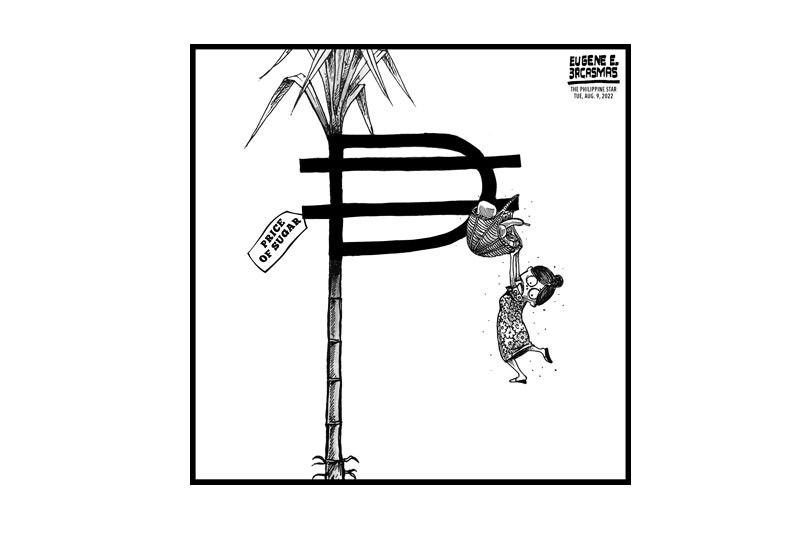EDITORIAL - Costly sugar

For many Filipinos, sugar figures in the morning routine. The day starts with a cup of coffee, usually with a bit of sugar stirred in, and a piece of bread that is more on the sweet side rather than salty despite the name, pan de sal.
For the rest of the day, sugar is often part of snacks and main meals. When millions of children resume face-to-face classes this month, the subsidized school feeding program in public schools will include milk, chocolate drinks or juices that also include sugar. Even instant noodles, a staple for low-income families, have sugar as an ingredient.
Prices of these basic food items have surged along with the higher cost of ingredients including sugar. Since last year, prices of raw and refined sugar have doubled amid a shortage attributed to weather disturbances and higher production input costs particularly of fertilizer.
Last month, inflation soared close to a four-year high of 6.4 percent, driven mainly by food and transport costs, with the rate for food and non-alcoholic beverages rising higher at 6.9 percent. Officials said fish, chicken, sugar, and bread and baked products that heavily use sugar were the biggest contributors to the food inflation.
President Marcos campaigned on a promise – later dialed down to an “aspiration” – of rice retailed at P20 per kilo. As concurrent secretary of agriculture, he will also have to deal decisively with the astronomical prices of sugar, which are affecting industrial users and households alike particularly the poorest families.
Like rice, the needs of consumers will also have to be balanced with those of sugar producers. Sugarcane growers are opposing the government’s go-to solution during shortages of agricultural products: flooding the market with imports.
Last February, the Sugar Regulatory Administration was set to bring in 200,000 metric tons of sugar, but two regional trial courts in the province of Negros Occidental, which accounts for over half of the country’s sugar output, issued restraining orders on the importation. The result: refined sugar prices have soared up to P115 per kilo as of last month from just P60 last year.
Now the SRA wants to import 300,000 MT of sugar as an emergency measure to arrest the shortage and continuing price surge. The government is also studying proposals to impose price caps, which could encourage hoarding and aggravate the shortage. But the greater challenge, as in rice, is boosting domestic production.
- Latest
- Trending































